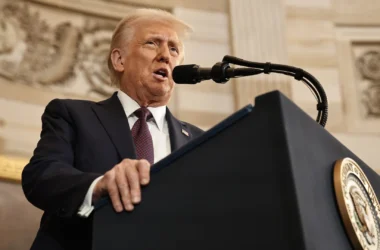Greenland’s ruling Siumut Party has announced plans to hold a vote on independence after the national elections on March 11.
The decision comes amid growing concerns over U.S. President Donald Trump’s open interest in taking control of the island, which has pushed the issue of independence to the forefront of political debate in the semi-autonomous territory.
Greenland, which has been a colony of Denmark since 1953, enjoys a significant degree of self-governing rights. The main focus during the upcoming election campaign will be Greenland’s potential independence, its relationship with Denmark, and growing concerns about U.S. intentions under Trump, who has repeatedly expressed interest in acquiring the strategically valuable island.
Siumut, a key party in Greenland’s two-party coalition government, aims to activate a 2009 agreement that allows for increased autonomy, including the right to negotiate full independence. Party spokeswoman Doris Jensen emphasized that achieving independence from Denmark is necessary for Greenland to negotiate its future on its own terms.
“Until our country achieves the status of an independent state, our opportunities to officially participate in negotiations will be limited,” Jensen said.
Party leader Erik Jensen has indicated that the vote on independence is expected to take place within the current election period, which lasts four years, although no specific timeline has been set.
While Greenland has a rich abundance of untapped mineral resources, its economy remains highly dependent on fishing and financial grants from Denmark. The country’s political landscape is divided, with five political parties in Parliament opposing the idea of Greenland becoming part of the U.S.
A survey found that 85% of the Greenlandic population rejected the idea of U.S. control, with nearly half of respondents viewing Trump’s interest as a potential threat.
Erik Jensen has stressed that any decision regarding independence should be made with full understanding of its implications. “It must be done on an informed basis, so that the population has no doubts about the consequences. We have a health system that must function, and we have economic aspects that we must review,” he said.




